‘I know a lot of riders paying to be in teams’: Willie Smit uncensored in underworld tales of pro peloton
Few riders are as honest in their assessment of the current state of cycling as South African Willie Smit
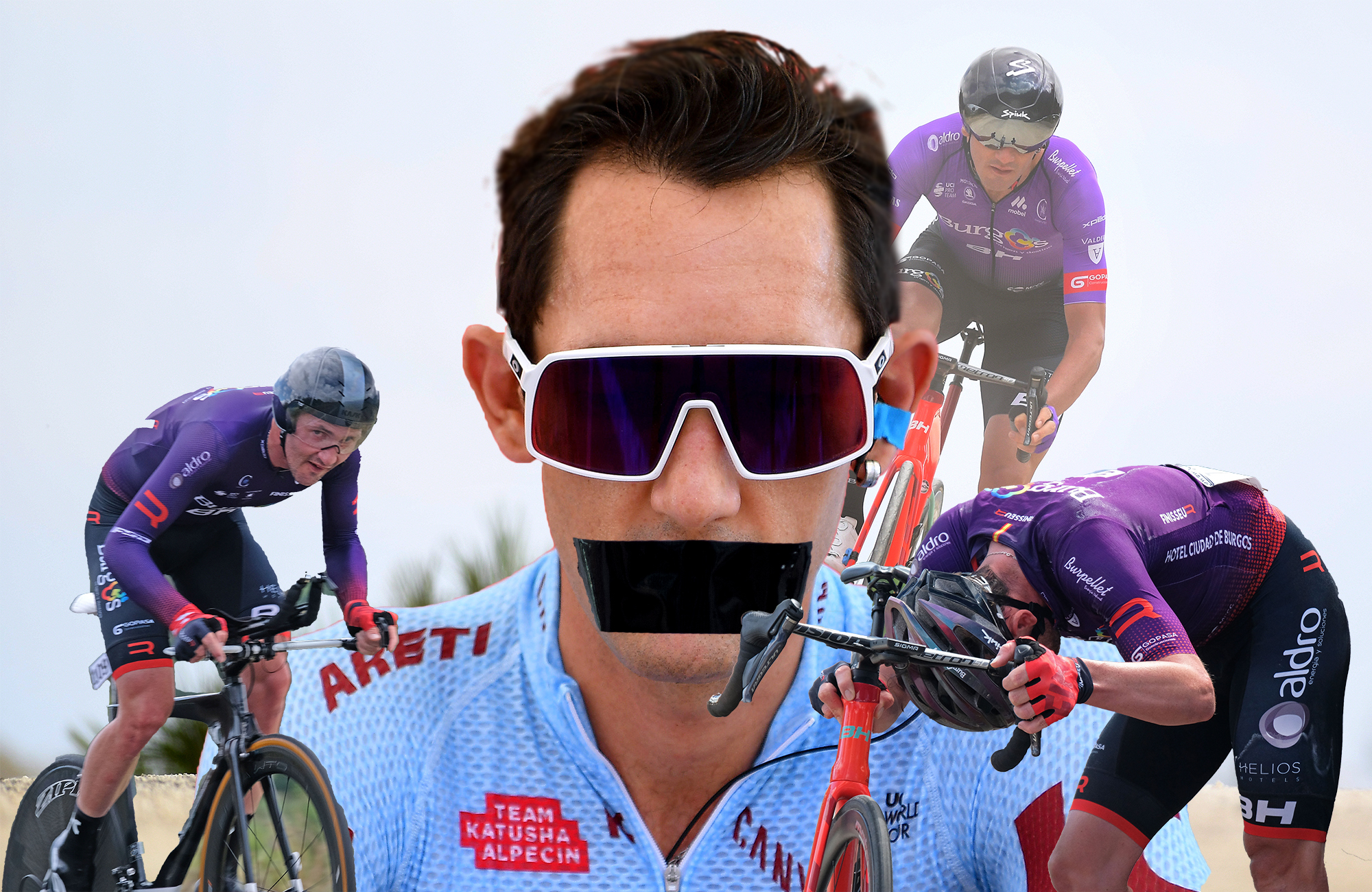
“Over the years I haven't been in teams where I've been censored in any way. Whereas in certain teams there's a lot of censoring going on. I've been fortunate in that way...for the time being.”
You don’t meet many riders like Willie Smit. Most riders placate potentially scintillating questions in mixed zones with an answer that isn’t going to get them in trouble. Sometimes, the most you'll be offered is the raise of an eyebrow, letting you know what they aren’t allowed to say. In the off-season, pros may share teases of gossip that are strictly off the record over the phone, but South African Willie Smit is unafraid to tell it as he sees it. And boy, does he have stories to tell.
So, where to start?
Often unprompted during our half an hour of conversation, he offers up anecdotes on inhalers, team politics, and the extremes of life as a professional rider. The crocodile smiles, the dodgy deals, the allegations of abuse of prescription medication in the peloton. It’s utterly refreshing, to be perfectly honest, to hear someone giving an uncensored view, there is no gaslighting to be found here, no protestations that everything is squeaky clean.
“I’m not sure if we can print that,” I find myself saying at times, such is the conditioning of the peloton and attendant cycling media to the ‘rules of the game’, as well as the trappings of libel laws (and you should have seen the amount of red highlighter sent back on the initial article from the lawyers), after Smit spoke to Cycling Weekly speaking from his base in Andorra, in between races for Spanish ProTeam outfit BurgosBH.
“I’m not scared to say it, but like...f***...you know?” is Smit’s summation after 50 minutes spent discussing his experience of the inner workings of professional cycling.
“I remember, in my first year with Katusha, when Tony Martin said something about the Chris Froome positive [for which he was cleared of any wrongdoing]. Our team boss actually walked up to him and made him take back the statement," Smit says. "You know how it goes."
Get The Leadout Newsletter
The latest race content, interviews, features, reviews and expert buying guides, direct to your inbox!
What is the biggest misconception those on the outside have about bike racing?
Smit then should be a good person to give a warts and all account of what it’s really like inside the professional peloton in 2021.
Of course, he is at pains to point out that everyone’s experience is different, dependent on whether you’re a young pro who never had issues and got snapped up by a good team early on, which is different from Smit’s experience, being only the second South African to make it to the WorldTour (after Robbie Hunter) without the help of an African-registered team.
“One misconception is that all of our bikes and equipment is on the same level playing field. It's completely not,” Smit says, when asked what are the biggest misconceptions people have about cycling - a thousand sponsors hold their breath.
“If you look at Stefan Küng’s new time trial bars that they use...it makes you so aerodynamic. You save literally about 20 watts, which actually means the other rider with standard TT bars literally has no chance. Simply just the position, I'm not even talking about the skinsuit, which also gives another minute and stuff like that. So time trialling has become not a fair sport. An example is Ryan Mullen, he used his own type of TT bars and he got a massive fine," Smit recalls.
“Our own team bikes are 7.8 kilos. So when I start a Grand Tour my bike’s a kilogram heavier than other teams, and my clothing equipment's drag efficiency is much worse."
Now I don’t feel so bad struggling to hit an average speed of 25km/h on my £350 Trek...
Smit’s story of becoming a pro wouldn’t be done justice smudged in between talk of time trial bars and the catfight of the peloton - but briefly - it involves arriving in Spain, winning more amateur races than the WorldTour outfit could eventually ignore while also dodging stodgy bureaucracy to keep everything moving.
He recently made the headlines when speaking openly about how he's seen some WorldTour riders treat pros on smaller teams, and says he only speaks out on topics when he truly believes in what he says.
He cites the example of Alex Dowsett’s retelling of the events at the start of the Tour of Turkey, when the Brit was involved in a disagreement with a rider who bumped him when his Israel Start-Up Nation squad were trying to block riders from getting in the breakaway, with Dowsett eventually deleting his retelling of the situation, which Smit thinks will “really discourage other riders” from being honest on their platforms.
Of the incident more generally, Smit says it’s not only hypocritical how bumping is unacceptable at the start of the race before it then occurs often midway through the stage and almost always in sprint finales, but also the madness that all each rider is usually doing is following orders given to them by their respective sports director sitting in the team car.
Handlebar bags at dawn

It was interesting, the Dowsett case. Rarely these days do we get real insights into the inner machinations of the peloton. So what is the peloton really like? Surely one united group harmoniously pedalling across continents and just having a grand old time of it?
“There's absolutely f*** all unity. They are all backstabbers,” Smit says, shattering the grand illusion.
“It's changed over the years, I promise you. The more modernised cycling has become the more it's not a team sport, it's an individual sport and you just cover your own arse.
“Because what the system has [become]...you know, the days of Lance, he would have three soigneurs and four other riders. That still happens now and then but on a much smaller scale.
“And if you remember the Vuelta a España with Froomey when they postponed the start last year. Froomey was in the front [leading the protest] and it was completely right what he did and I remember half of the bunch was against that. And I was like, “f**k, guys, none of you ever stand together?’ No one. Sometimes you have to stand together with your fellow cyclists even if they aren't entirely right, just to stand together. And there isn't anything like that anymore. Times have changed."
Fake friends and agents working against the riders they are supposed to represent are also par for the course, in Smit's experience.
“I mean, I could literally go from sitting on one table to the next table and you have people talking s*** about each other. You're riding in the bunch and you think Froomey and Richie Porte are still good friends and then Porte will be talking a lot of s*** about Chris to Geraint Thomas. Riding in the peloton you hear these things, and then the next day they're acting as if they're friends but it seems to me they're not.
“But saying that you also get super nice guys. It's the same problem we have with the agents now. A lot of the agents work for the teams and not for the riders anymore, whereas before they always had to work for the riders. But now they get so much work and money from the teams, working for the teams that have big sponsors, and so they also have a card to play: ‘sign this or that rider’. But then sometimes they have a problem with a smaller rider, then that agent doesn't want to fight with the team because they prefer to keep the relationship with the team as opposed to the rider. So, you know, everyone's just fighting for themselves.
“Money talks. Makes the world go around.”
Safety first
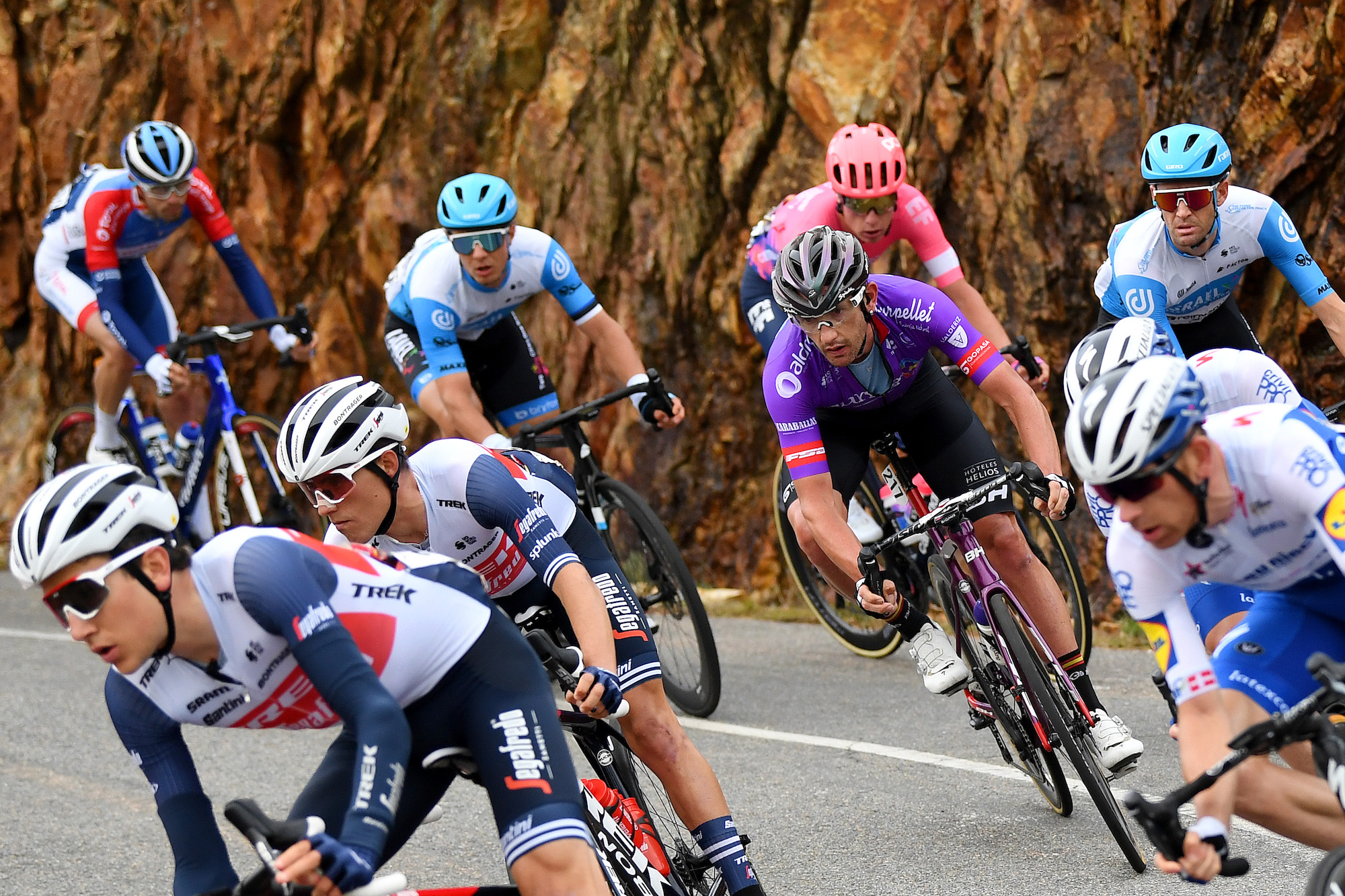
Smit agrees it sounds like high school but on bicycles, and now we’re on a roll, setting the cycling world to rights.
“The other [safety] thing is when you go to any African Tour, or even in Turkey, there are many instances where UCI races can get cancelled if the organiser does not follow the rules. Have you ever seen a race get cancelled because they don’t adhere to the UCI rules? No.
"But do you ever go to a race and see multiple UCI rules not followed by the race organiser? Yes. All the time...and if you go to an African Tour then it's terrible, but they just turn a blind eye. The UCI will never cancel. It's only in their benefit if a race goes on, the more races there are, the more money they make."
As for the new fines on littering and bidon disposal, well...
“I think they're taking advantage of just fining the shit out of rich WorldTour riders and teams. Just left and right and pocketing the money and having a laugh about it. Because if you saw the finishes we had in Turkey, the final stages, it was absolutely ridiculous. We went through one tunnel for a kilometre and we couldn't see s*** inside the tunnel. It was completely f****** dark the whole time.
"The other stuff is is all a little bit you know, complicated," Smit continues.
"And obviously it's complete bullshit when you always have the motorbikes in front because the riders get so much drag off of it...I mean, a lot of times we think 'oh this guy's so strong' and he's getting so much drag. He is strong, don't get me wrong. You'll see a rider attack, [Alejandro] Valverde for example, we had it in Andalucia in 2018 he attacked over the climb with [Jakob] Fuglsang, we had a whole bunch chasing them on a downhill straight for like 30 kilometres and they opened up the gap, it was literally impossible. But it doesn't make them less of a champion. It's a nice view and obviously TV rights and money but yeah, I would say it influences races quite a lot."
Editing YouTube videos until 2am at the Vuelta a España
One of the first times I really sat up and took notice of Smit was when he tweeted towards the end of the 2020 Vuelta a España revealing he would often stay up until 2am working on videos for his YouTube channel.
This sort of behaviour is intriguing, a professional cyclist keeping their eyes open until the early hours after hundreds of kilometres of racing, day after day. The question wasn't just why, but why make this seemingly erratic behaviour public?
As @lavuelta 2020 comes to an end. Let's share some stories: Some nights during Vuelta I worked until 02:00am to get the vlogs done. Learned this bad habit during Quarantine as insomnia evolved. But hey, no regrets #vloglife pic.twitter.com/2VvwGrkpCpNovember 9, 2020
"The thing is, okay, that's really not good for you," Smit admits. "Some of them [other pros] live such extreme lives. And you know, I've done it myself, got too skinny, not had enough power, [some riders] go to bed so early and they're always nervous and always stressed out.
"I've done stuff like that, or work on YouTube stuff until 3am, or I've had two glasses of wine. It's really not a lot, let's be honest. And I've gone to bed like, you know, close your eyes because you're tired, you're not trying to go to sleep at 9pm. And then you stress' ah I can't fall asleep'. So the reason I said [I was staying up really late] was to show that I was top 30 in a really difficult mountain top finish in a Grand Tour and I do stuff like that. You don't always have to do these extreme things to be good, you can live a normal life.
"I think a big eye-opener is when you're doing extremely bad preparation and then you go really well in a race and then you start realising...but saying that you have to find a constant. I mean, this [staying up super late] is very rare. I don't sit every night for example up until three, but It happened one night. I was like 'I'll finish this vlog now'. Whatever. And then you go to sleep. But you don't have to be doing extreme stuff every single day of your life. That's absolutely not true."
Has it got too serious?
"It definitely has, I mean, f***...even the aero socks now as well now. Like, whatever...
"Obviously, the time I was with Marcel Kittel [at Katusha], he wasn't scared to put the food on his plate. Some of them aren't scared. Some of them are very [scared], especially the younger riders that are new to the sport and they're trying to find themselves."
What Smit does worry about, which is heightened due to the severe anxiety he has received treatment for, is crashing.
"Definitely with my anxiety it's just the crashing. I've ended up behind too many crashes. I can with a lot of confidence since 2011 I've never ever crashed anyone else. Maybe like we've had an unclip, you know, like on a climb, and you turn left at a steep ramp and people unclip. I mean, that's not a crash. But you know, really crashing bad and doing bodily harm, which will be with you for the rest of your life...
"Because, you know, every race you see someone crash hard, them screaming, and it gets stuck in the back of your mind. That's the biggest worry I would say."
The war on drugs
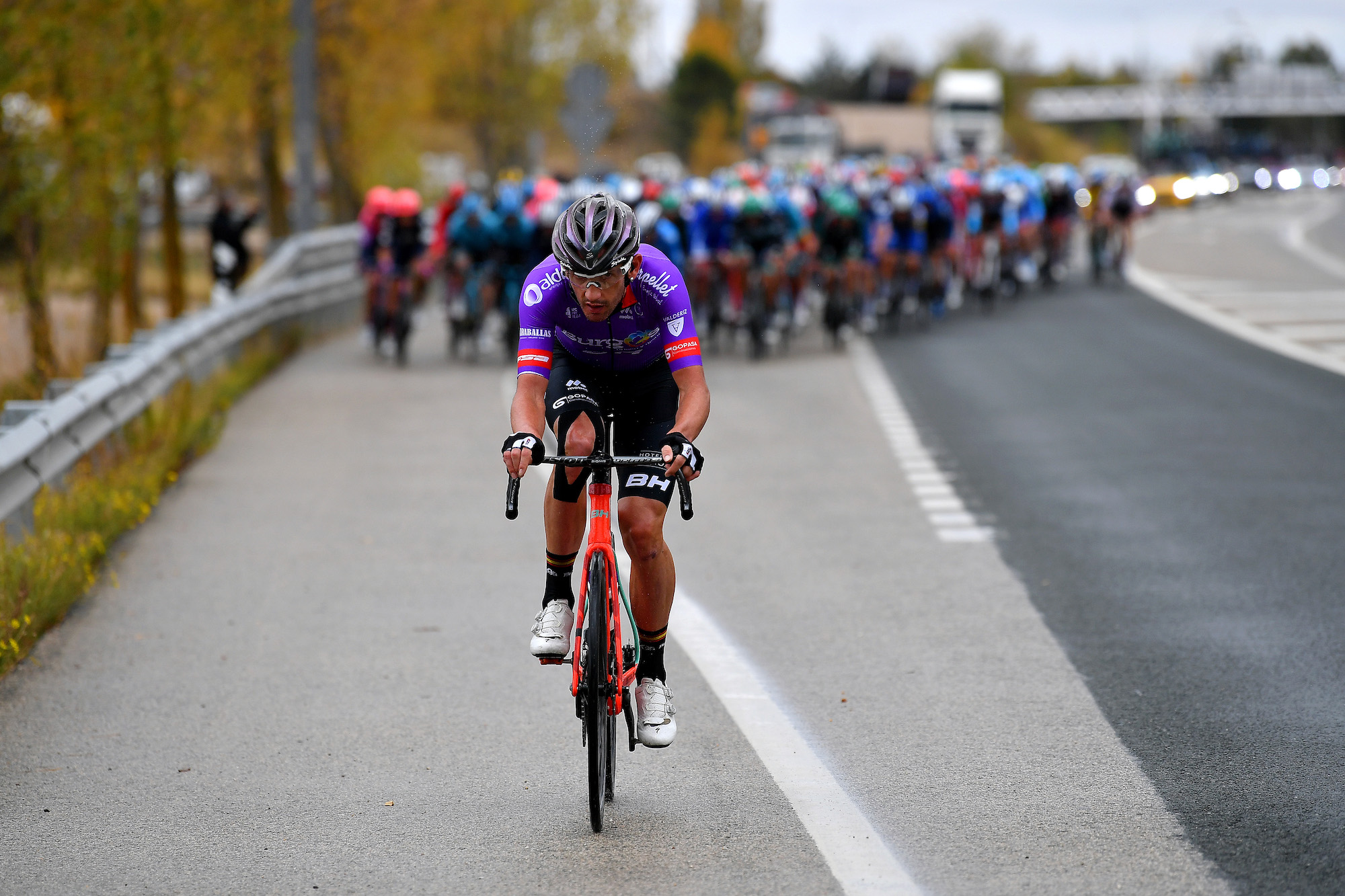
Another worry is what Smit describes as seeing other riders abuse medical prescriptions for a racing advantage now, but with long-term health implications further down the line.
"There's a lot of other stuff going on with riders taking too many types of pain medications, which they still use. Thyroid medications and pushing the limits of every legal prescription medication, which unfortunately is not good for your body in the long, long term, which you see going on in all the teams.
"If you were to walk onto any bus, everyone has asthma inhalers. It's just the new norm. If they tell you it's not like that they're talking bulls**t," claims Smit.
Smit also believes the use of performance-enhancing drugs outside of competition is bad, and that other problems such as cross-contamination muddy the water of the anti-doping fight.
"The thing is, the UCI is banning so so many drugs, the new difficult one that's coming up is cortisone. And that's getting bad out of competition as well now. Cortisone is one of the few things that actually, if a rider really, really has a problem, like an intramuscular problem, can really help. And now the riders that really have problems are getting flicked because of the riders using it for performance gains in training.
"But the rules are getting so strict nowadays. It's the same with cross-contamination. When I get drug tested, I don't even write the supplementation I use, because I tell them it doesn't even matter if I prove cross-contamination, the oversight is on me. So even if I prove cross-contamination, the UCI rules clearly say we do not need supplementation, you only need good health, diet, and all the responsibility lies with you. If you don't have the same money as Froome to fight these cases [such as in his salbutamol case], substantial amounts of precedence and evidence, and continue court cases, then it's better just to take your ban. Otherwise, you're going to lose a lot of money."
Our time is wrapping up, Smit has been very generous with what he's shared, allowing those on the outside in, putting the spotlight on a sport he's passionate about and which he clearly believes should have better governance, and a better moral compass, than it currently does.
Is there anything we've left uncovered, Willie? Anything else you want to say?
"It's completely illegal [in the eyes of the UCI] to be paying to be in a team but I know of a lot of riders paying to be in teams, big teams," Smit says. Blimey.
"Yeah. Just completely illegal but the UCI...stuff like that.
"Unfortunately, teams have learned during COVID they can cut riders' salaries. There's a clause which allowed them to cut riders' salary quite easily and what the teams literally do now is go 'we don't have money, we're cutting your salary' and if you don't like it then we just don't offer you another contract and what can a rider say?
"The other funny thing was actually, and this is what I'll finish it off with, is riders started complaining because teams didn't pay them, you know the COVID salary cuts, but then WorldTour teams have big training camps, which are very expensive, and then immediately after COVID the teams had so many training camps and the riders were like, "Oh, you can't pay us but you can have these training camps!' This does not make sense. It does not make sense at all."
Rarely does cycling ever make sense, but with people like Willie Smit around, it makes it more than worthwhile.

Thank you for reading 20 articles this month* Join now for unlimited access
Enjoy your first month for just £1 / $1 / €1
*Read 5 free articles per month without a subscription

Join now for unlimited access
Try first month for just £1 / $1 / €1
Jonny was Cycling Weekly's Weekend Editor until 2022.
I like writing offbeat features and eating too much bread when working out on the road at bike races.
Before joining Cycling Weekly I worked at The Tab and I've also written for Vice, Time Out, and worked freelance for The Telegraph (I know, but I needed the money at the time so let me live).
I also worked for ITV Cycling between 2011-2018 on their Tour de France and Vuelta a España coverage. Sometimes I'd be helping the producers make the programme and other times I'd be getting the lunches. Just in case you were wondering - Phil Liggett and Paul Sherwen had the same ham sandwich every day, it was great.
-
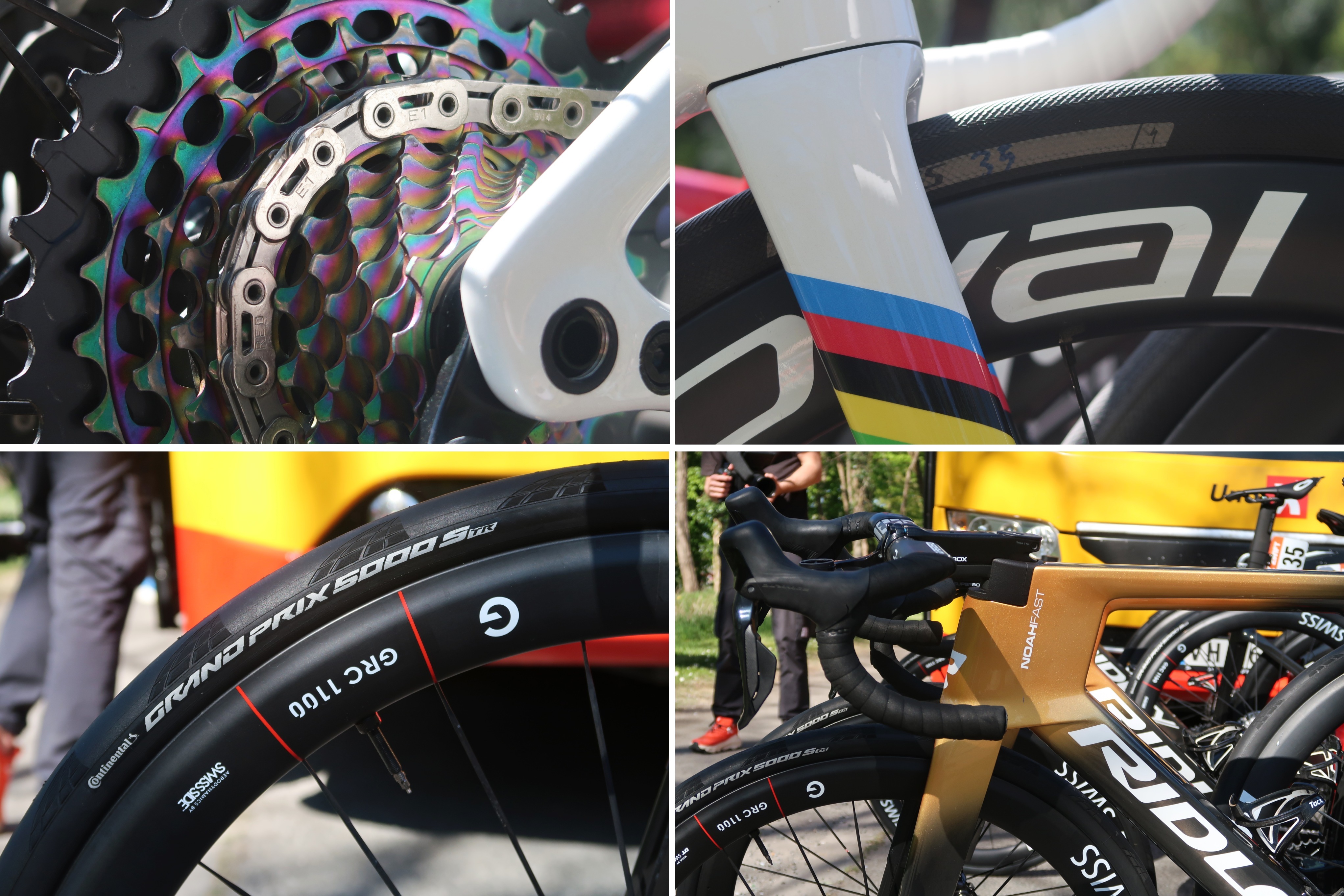 Aero bikes with gravel wheels?: Six tech insights from Paris-Roubaix Femmes
Aero bikes with gravel wheels?: Six tech insights from Paris-Roubaix FemmesEverything we found out about tyre widths, self-inflating systems, and wheel choices from the cobbled Monument
By Tom Davidson Published
-
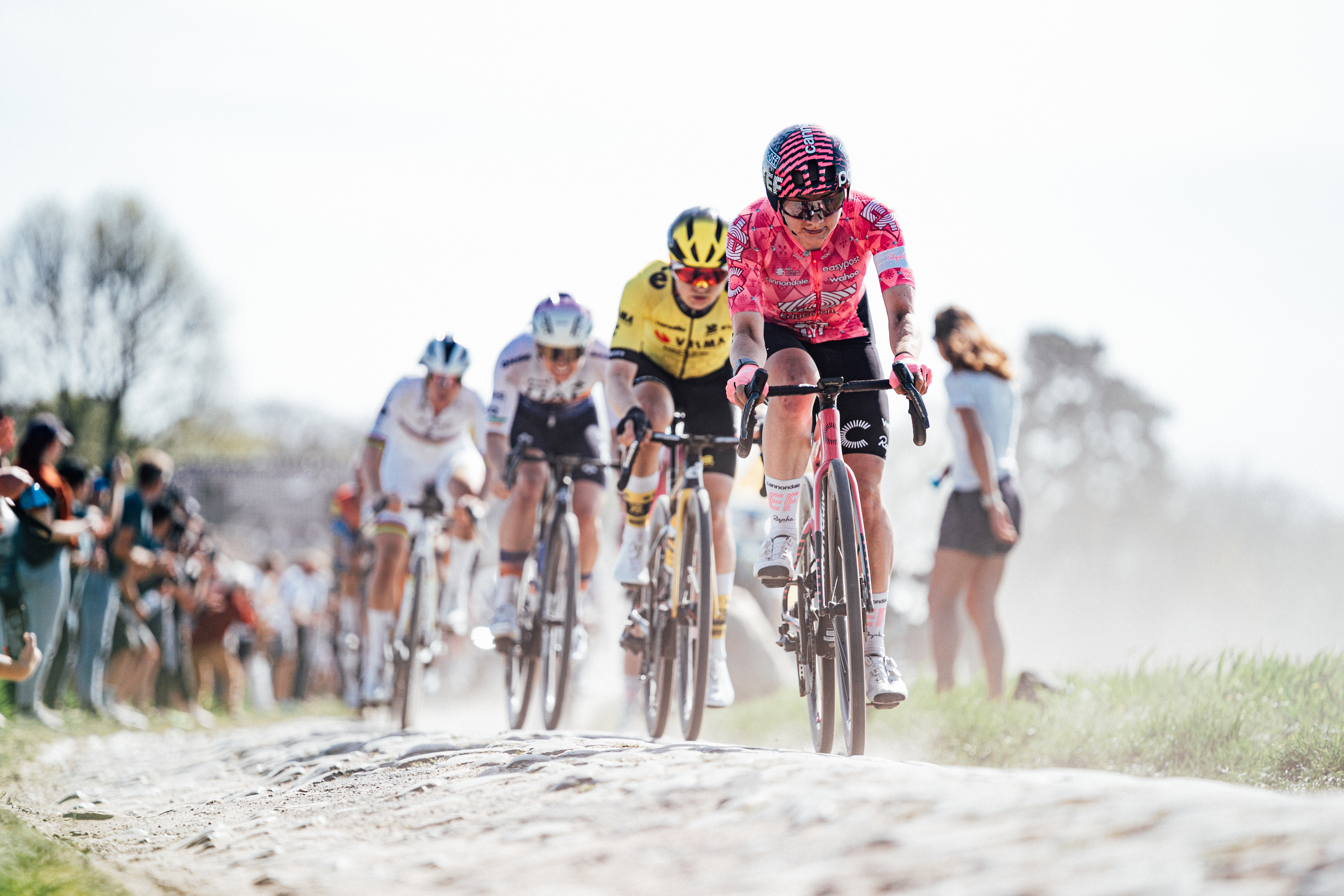 'This race is absolutely disgusting': Peloton reacts to another brutal Paris-Roubaix Femmes
'This race is absolutely disgusting': Peloton reacts to another brutal Paris-Roubaix FemmesNow in its fifth edition, Paris-Roubaix Femmes is still a tough race, even for the best bike riders in the world
By Adam Becket Published